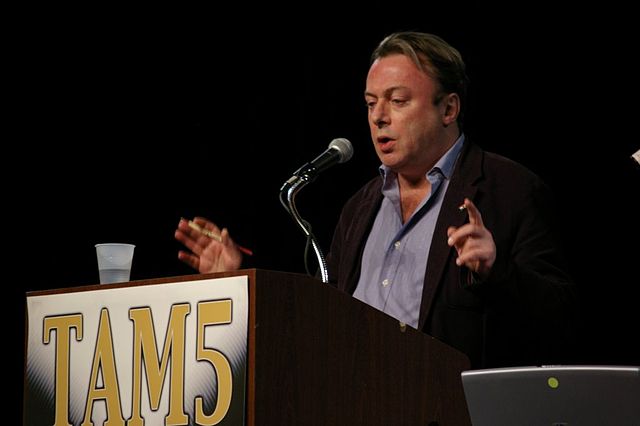Controversial Journalists are an Endangered Species

(Image of Christopher Hitchens in 2007 courtesy of ensceptico via Wikimedia Commons).
Journalists are an aging species. Even in Washington, D.C., where I live, the ranks of former journalists are legion; you can’t play a pickup basketball game or be on Twitter without coming across an ex-reporter. Since 2005, the number of newspaper reporters has dropped by two-thirds or 43,000, a population larger than the capacity crowd at Wrigley Field, home of the Chicago Cubs.
Yet one journalistic type has taken it even harder on the chin: the one who courts controversy and displays “swagger” in his or her copy or public appearances. This journalist may be properly termed a dying breed and possibly extinct.
The Indian summer of controversial journalists
The decline of the controversial journalist is striking not least because the trend is recent. Until around 2010, controversial journalists were hard to avoid on television or the Internet.
Christopher Hitchens held Oxford-style debates. William F. Buckley was a guest on “Charlie Rose” after hosting his show “Firing Line” on PBS for decades. Molly Ivins was on the lecture circuit. Robert Novak was a ubiquitous presence on cable television news programs. Michael Kelly escorted Fawn Hall to the White House Correspondents’ Dinner, while Jimmy Breslin hosted no less a TV show than Saturday Night Live.
Plenty of journalists have a national profile or constituency. Yet their calling card is no longer public controversy or swagger.
How nationally-known journalists have changed
Many are partisans—Tucker Carlson, Mollie Hemingway, Rich Lowry, E.J. Dionne, Jr., Rachel Maddow, Nina Totenberg, and Dana Milbank.
A few are intellectuals—David Brooks, Ross Douthat, David Grann, Ramesh Ponnuru, David Remnick.
Sometimes, as in the case of Mollie Hemingway, Rich Lowry, and Ta-Nehisi Coates, they are both. Or they are dissenters from their ideology or faith—David French, Rod Dreher, et al.
Partisan- and intellectual journalists have value in a vibrant civil society. They can be practical and educational.
Yet their appeal is limited. They don’t engage the broader public in general or the middle- or working classes. None is Jimmy Breslin, spokesman for urban blue-collar workers.
The price we Americans pay
Their absence has, at least, three costs.
For starters, public discourse has suffered. Controversial journalists, almost by definition, stirred up debate. Messrs. Buckley and Novak went public with their opposition to the U.S. invasion of Iraq. Ms. Ivins urged Americans to take a second look at George W. Bush’s record in Texas. Mr. Hitchens asked religious believers to explain their beliefs.
Second, controversial journalists tapped into the public mood. Mr. Breslin wrote unforgettable stories about President Kennedy’s death, funeral, and burial.
Last, controversial journalists made public debate sophisticated or somewhat so. Their arguments showed that ideas can and should be separate from people; a noble person can have a dumb idea, while a dumb person can have a noble idea. To be sure, many people make arguments in their self-interest, but it doesn’t need to be so.
What happened to controversial journalists?
It’s tempting to blame comedian Jon Stewart for his disingenuous takedown of the CNN show “Crossfire” in 2004; he accused the show of “hurting America” because a liberal and conservative co-host aired differing opinions and after the show died off, he hosted “The Daily Show” for liberals and progressives only. Yet even the takedown of “Crossfire” was not sufficient to wipe out controversial journalists as a whole.
It’s also tempting to conclude the internet has made controversial journalists obsolete; when anyone with an internet connection can do his or her own research, what good do they serve? Yet this is technological determinism rather than clear-headed reason.
Off the top of my head, I can think of journalists who could fill the role of being a controversial journalist: Wes Lowery, the reporter who argued for balanced coverage of police shootings in poor, big-city neighborhoods; Andrew Sullivan, the gay rights author and provocateur; Jonathan Chait, New York columnist; and David Simon, the producer of “The Wire” and chronicler of poor big-city neighborhoods.
I recognize the three are left of center, so I would be interested to hear your suggestions for those on the center-right.
-30-

0 Comments